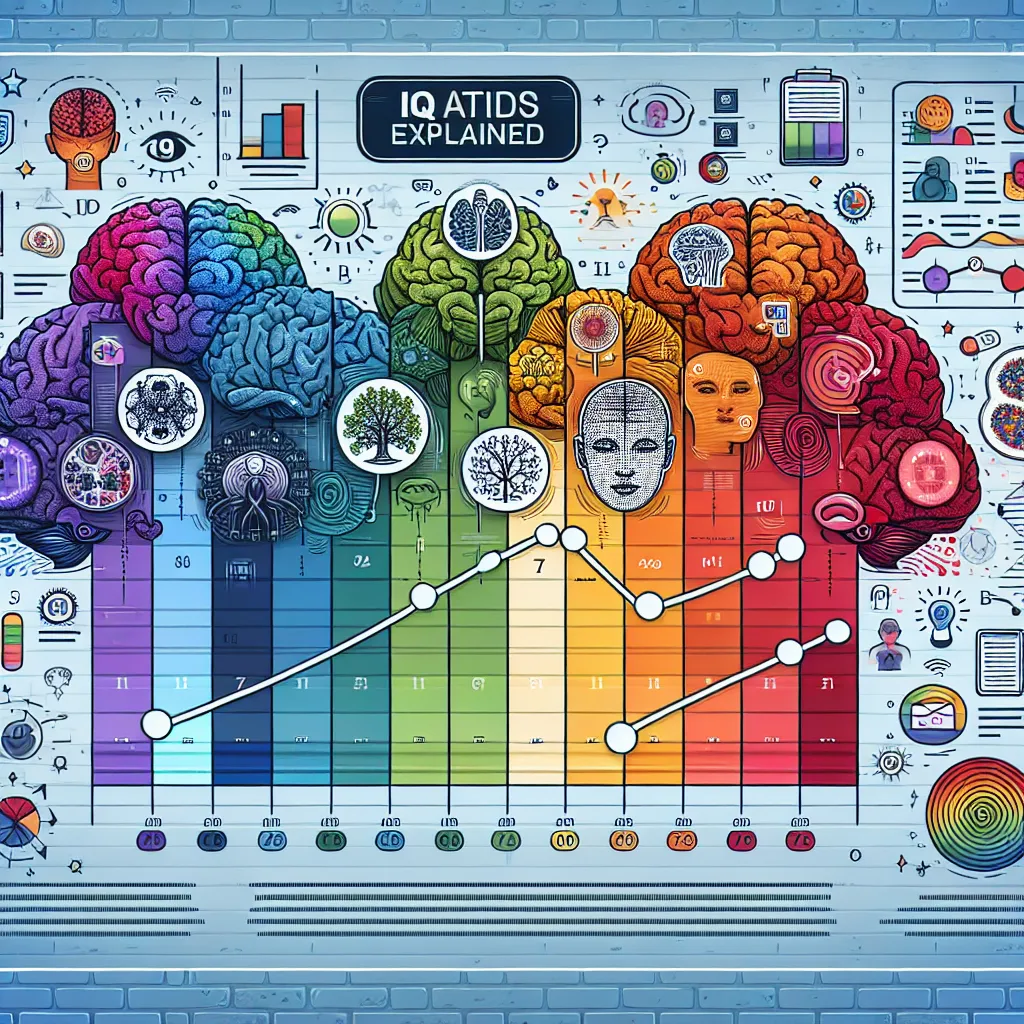Understanding IQ Ratings: A Modern Guide for 2024
Intelligence Quotient (IQ) continues to intrigue scientists, educators, and the public alike. As our understanding of human cognition evolves, IQ remains a significant – though not definitive – measure of intellectual capabilities. This updated guide explores the latest perspectives on IQ scores, their measurement, and their relevance in today’s rapidly changing world.
If you are looking for an excellent way to get your IQ Score, try our highly accurate IQ Test.
The foundation of IQ testing, established by William Stern in the early 20th century, has evolved significantly with modern neuroscience and psychological research. Recent studies using advanced brain imaging techniques have revealed fascinating correlations between IQ scores and neural network efficiency, suggesting that intelligence involves the complex interplay of multiple brain regions rather than a single cognitive center.
Modern IQ tests assess various cognitive domains, including working memory, processing speed, verbal comprehension, and fluid reasoning. These assessments have become increasingly sophisticated, incorporating cultural sensitivity and reducing historical biases. The standardized scale remains anchored at 100 as the population average, with most individuals scoring between 85 and 115.
The statistical distribution of IQ scores follows the well-established bell curve pattern. This mathematical model shows that approximately 68% of people score within the 85-115 range, 95% fall between 70-130, and 99.7% score between 55-145. Recent research has highlighted the importance of understanding these ranges within specific cultural and educational contexts.
The implications of IQ scores have gained new relevance in our technology-driven era. While traditional educational and career planning still benefit from IQ assessment, artificial intelligence and automation have sparked fresh debates about human intelligence and adaptability. Studies now suggest that cognitive flexibility – the ability to adapt and learn new skills – may be as crucial as raw intelligence scores.
Contemporary research has expanded our understanding of intelligence beyond traditional IQ measures. Building on Howard Gardner’s multiple intelligences theory, neuroscientists have identified distinct neural pathways associated with different types of intelligence. Emotional intelligence (EQ), particularly, has emerged as a critical factor in personal and professional success, often outweighing traditional IQ measures in predicting life outcomes.
The scientific community increasingly emphasizes that IQ scores represent just one aspect of cognitive capability. Recent studies in neuroplasticity demonstrate that intelligence isn’t fixed – the brain continues to develop and adapt throughout life, influenced by environment, education, and experience. This finding challenges earlier beliefs about intelligence being largely predetermined.
When interpreting IQ test results today, it’s essential to consider them within the broader context of cognitive assessment. Modern practitioners recommend viewing IQ scores as a snapshot of current cognitive functioning rather than a fixed measure of potential. The rise of personalized learning and adaptive testing technologies has made it possible to identify specific cognitive strengths and areas for development more precisely than ever before.
Leading IQ assessment tools continue to evolve. The latest versions of the Wechsler scales (WAIS-IV and WISC-V), Stanford-Binet test, and Raven’s Progressive Matrices incorporate updated norms and refined questioning techniques. These improvements reflect our enhanced understanding of cognitive development and cultural diversity.
Cutting-edge research in cognitive science is revealing new dimensions of human intelligence. Studies in artificial intelligence and machine learning have provided fresh insights into how we process information and solve problems. This research suggests that human intelligence is far more dynamic and adaptable than previously thought.
Recent developments in educational neuroscience highlight the importance of environmental factors in cognitive development. Nutrition, sleep quality, physical exercise, and social interaction all significantly impact cognitive performance. This holistic understanding has led to more comprehensive approaches to enhancing intellectual capabilities.
The field of intelligence assessment continues to advance rapidly. While IQ tests remain valuable tools for understanding cognitive abilities, they’re now part of a broader toolkit that includes emotional intelligence assessments, creativity measures, and adaptive skill evaluations. As we move forward, the focus increasingly shifts toward understanding intelligence as a multifaceted, developable attribute rather than a fixed characteristic.
For those curious about their cognitive abilities, taking a well-validated IQ test can provide valuable insights. However, remember that such tests are most useful when viewed as part of a comprehensive understanding of your capabilities. In our fast-evolving world, the ability to learn, adapt, and grow may be the most crucial form of intelligence of all.




Leave a Comment